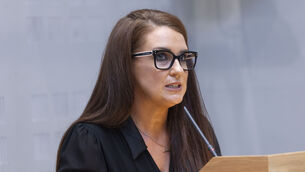School religious discrimination may still be happening despite law

The ECRI said privately-funded schools promoting religious values can give preferential treatment to pupils of a particular religion. Picture: iStock
Religious discrimination in school admissions in Ireland might still be happening “in practice”, the Council of Europe’s anti-racism body has noted.
The European Commission against Racism and Intolerance (ECRI), has published today a report assessing Ireland’s progress when it comes to anti-discrimination and anti-racism policies.













